Submitted by WA Contents
Znamy się creates club-like atmosphere in pastry shop featuring orange-tinted circular element
Poland Architecture News - Aug 31, 2023 - 15:48 1884 views
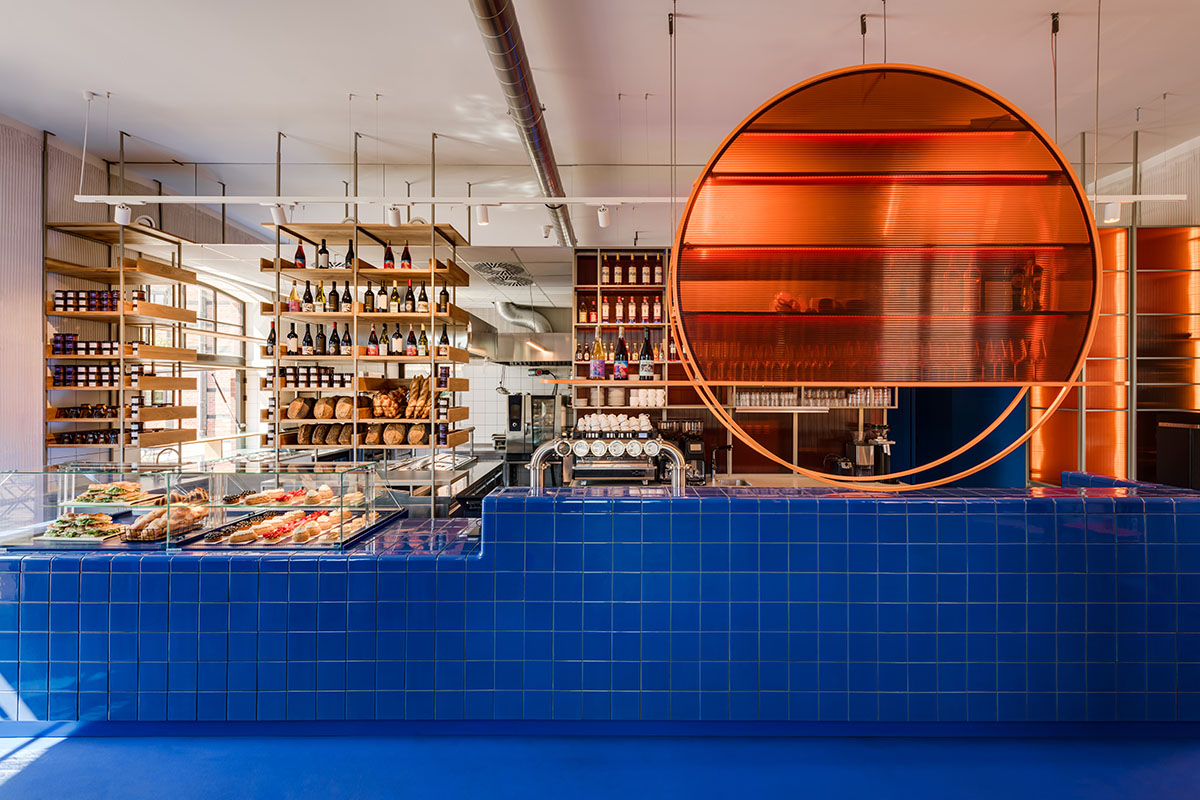
Wrocław-based architecture practice Znamy się has designed a cobalt bar and orange-tinted circular element to create a club-like atmosphere and the feeling of the setting sun.
The project, named Pastry Club Woda, is located in an old boilerhouse within the historic Rother’s Mill complex on Mill Island in Bydgoszcz, Poland. Bydgoszcz is a bustling part of the city and a popular hangout spot.
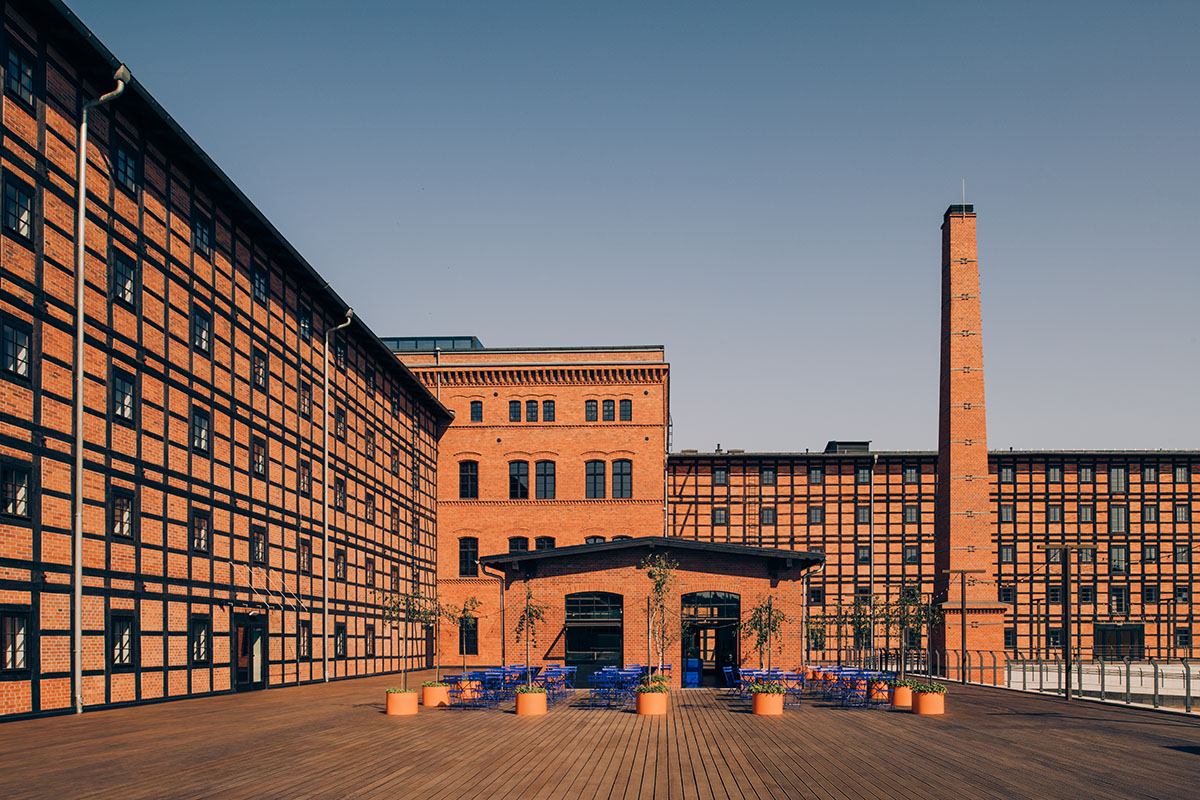
The 78-square-metre project brings together the two energies of two functions: pastry and club - alongside day and night, water and sun.
Znamy się asked the main question for this project: "Is SOMETHING MORE a club inside a pastry shop or a pastry shop inside a club?."
As the team explained, the Mill Island is surrounded by water and it is "a popular place that attracts people with cultural events organised by the city of Bydgoszcz."
"Besides its recreational functions, Mill Island is also closely related to the inland water transport of grain and the production of flour."
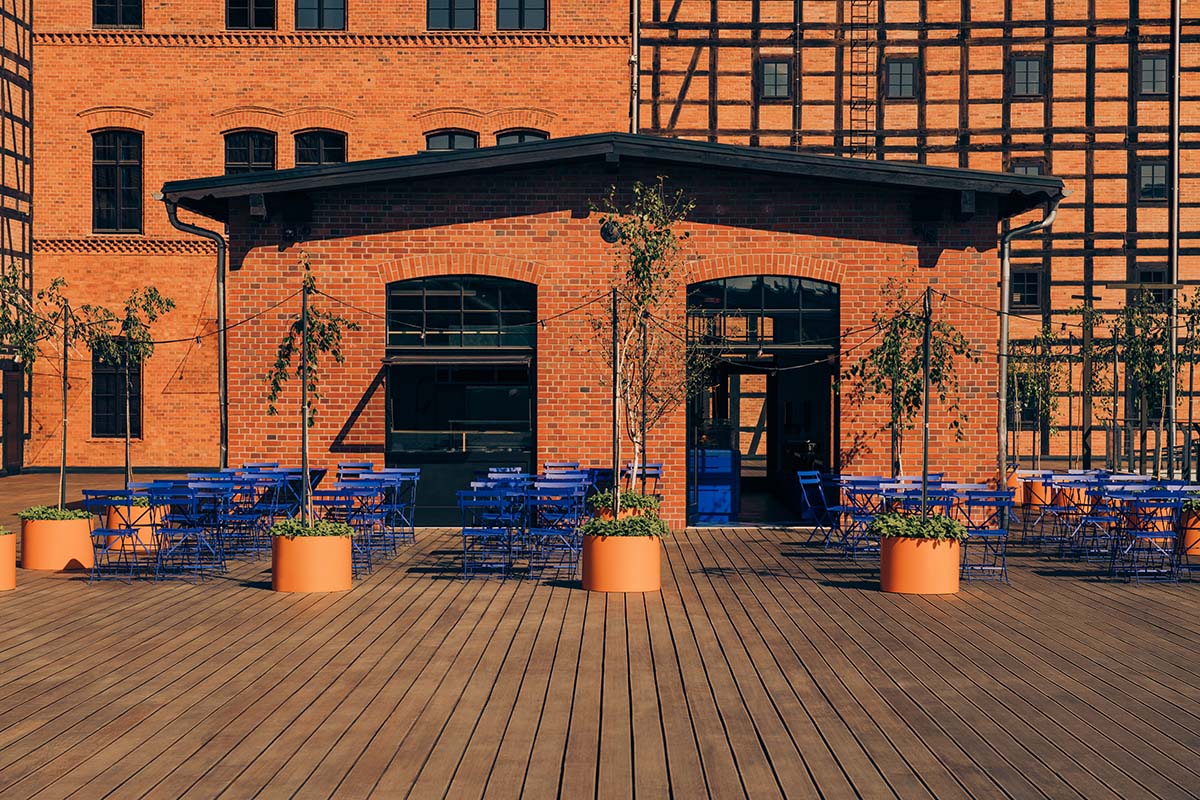
The contextual elements were driving factors to emphasise those aspects in the interior, as the team noted.
For this reason, the studio decided to achieve to create a colorful space focusing on colours and different textures.
In doing so, they used cobalt-coloured floor, bar, and equipment that can make the water literally flow inside.
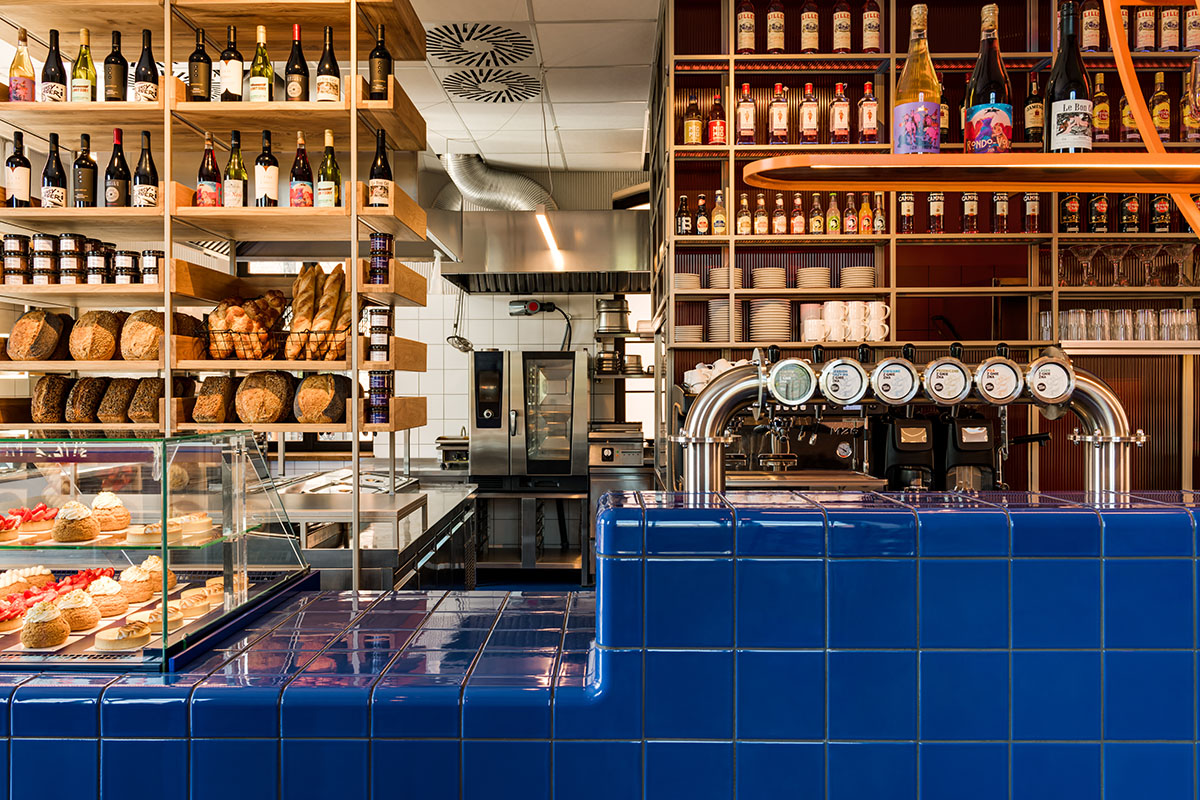
For example, while the streamlined cobalt bar divides the interior in half, this way it navigates the movement of the customers. Everyone flows freely inside to later flow out with the current.
The layout and the current do not allow for any sudden turn to the technological area; the direction of movement is as natural as the moving water.
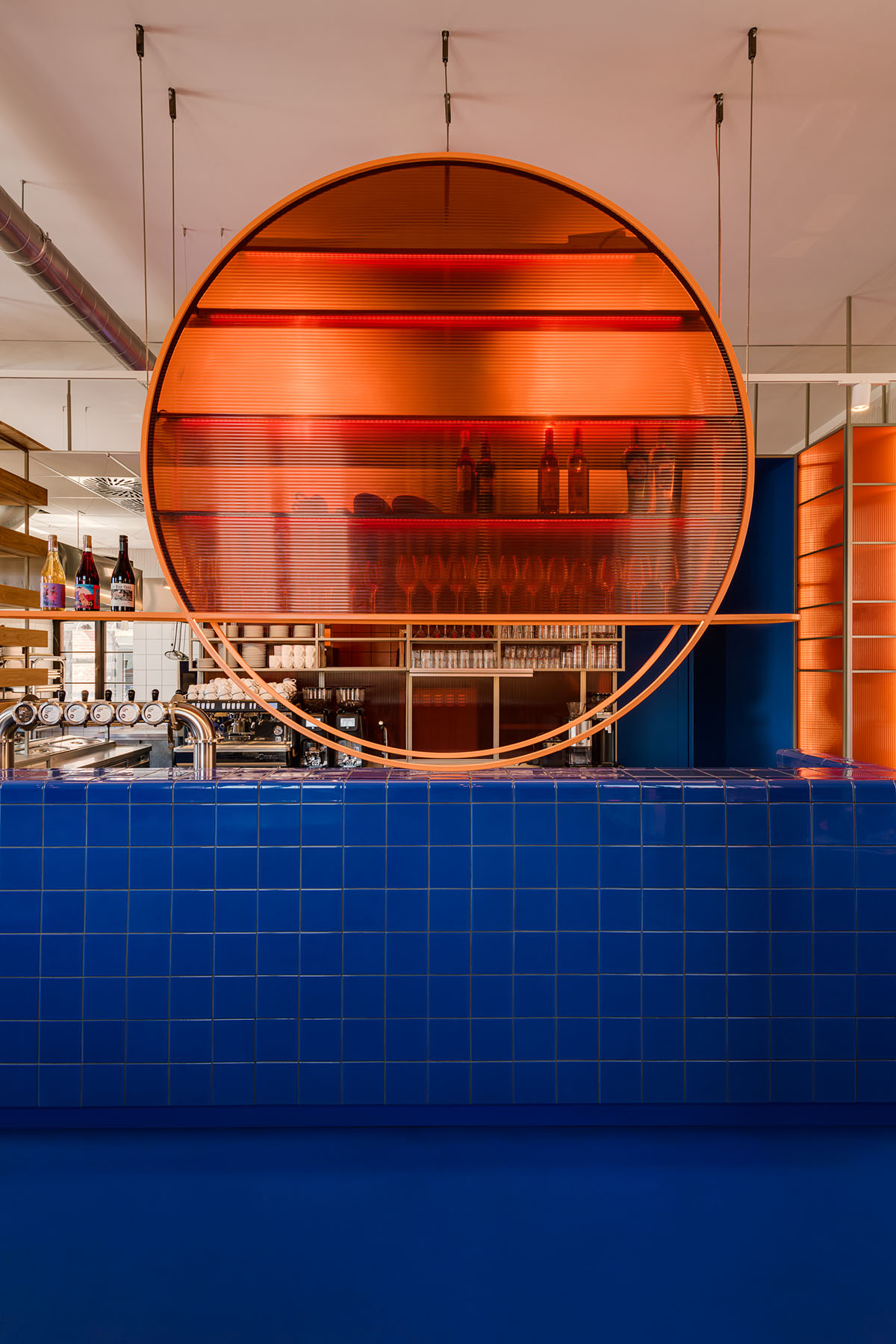
Building-machine
Rother's Mills complex is composed of a grain and flour granary storehouse, as well as a middle section where the historic mill was located in the past.
This is where the production of flour took place i.e., grinding, cooling, sifting, and packing, followed by the transport of the finished product to the flour granary.
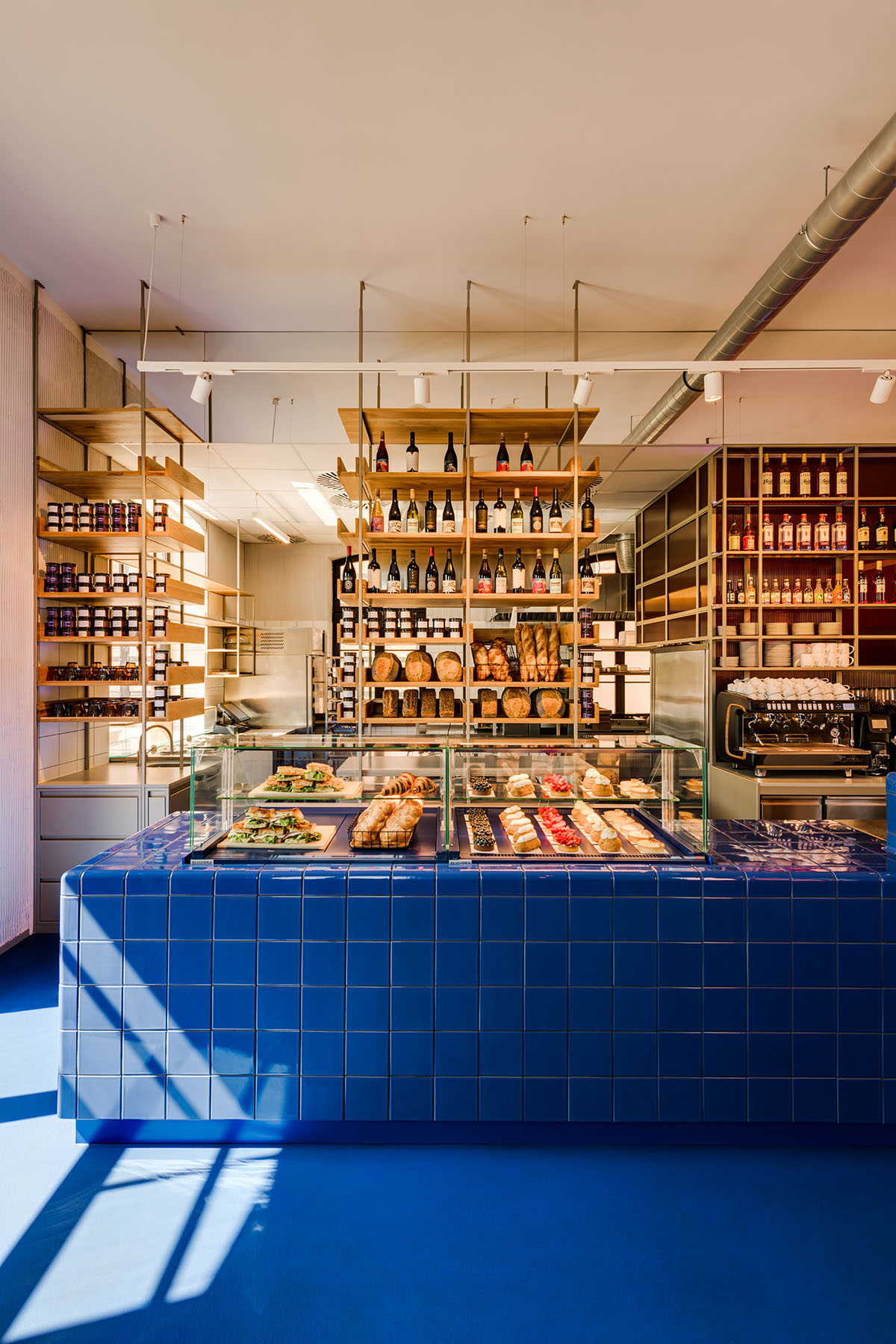
Different production processes took place on each floor by using modern machinery.
The grinding required the use of millstones with characteristic grooves. The already grounded grain was transported to the 3rd floor, where the machines called Hopper-boy were distributing the freshly milled flour in order to cool it.
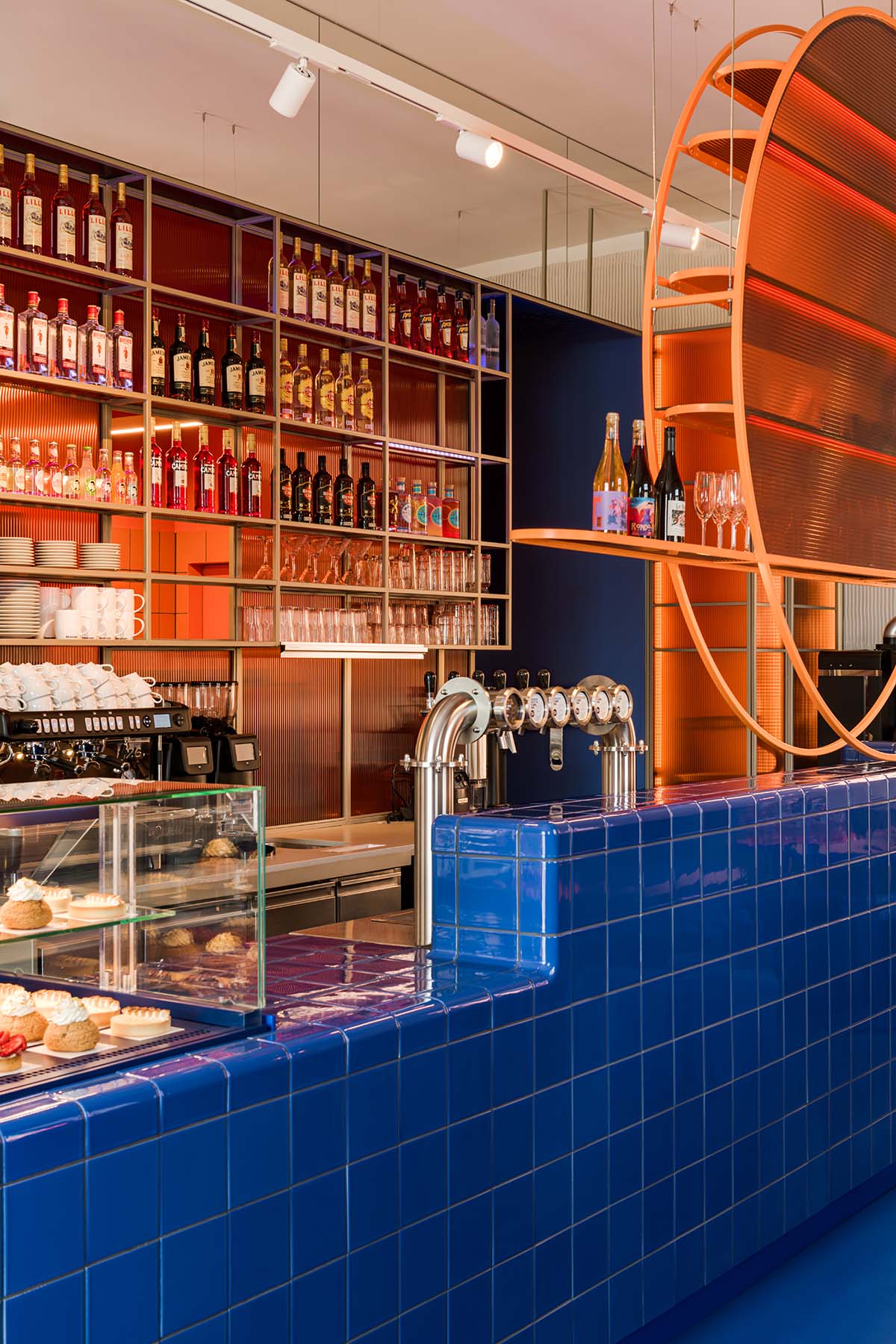
On the floor, Hopper-boys were drawing circular raked shapes. Afterwards, the product found its way to the 2nd floor into steel bolters to be sifted into flour, middlings, and bran.
Packing the flour was the last process which took place on the ground floor. When finished, the flour was transported to the flour granary.
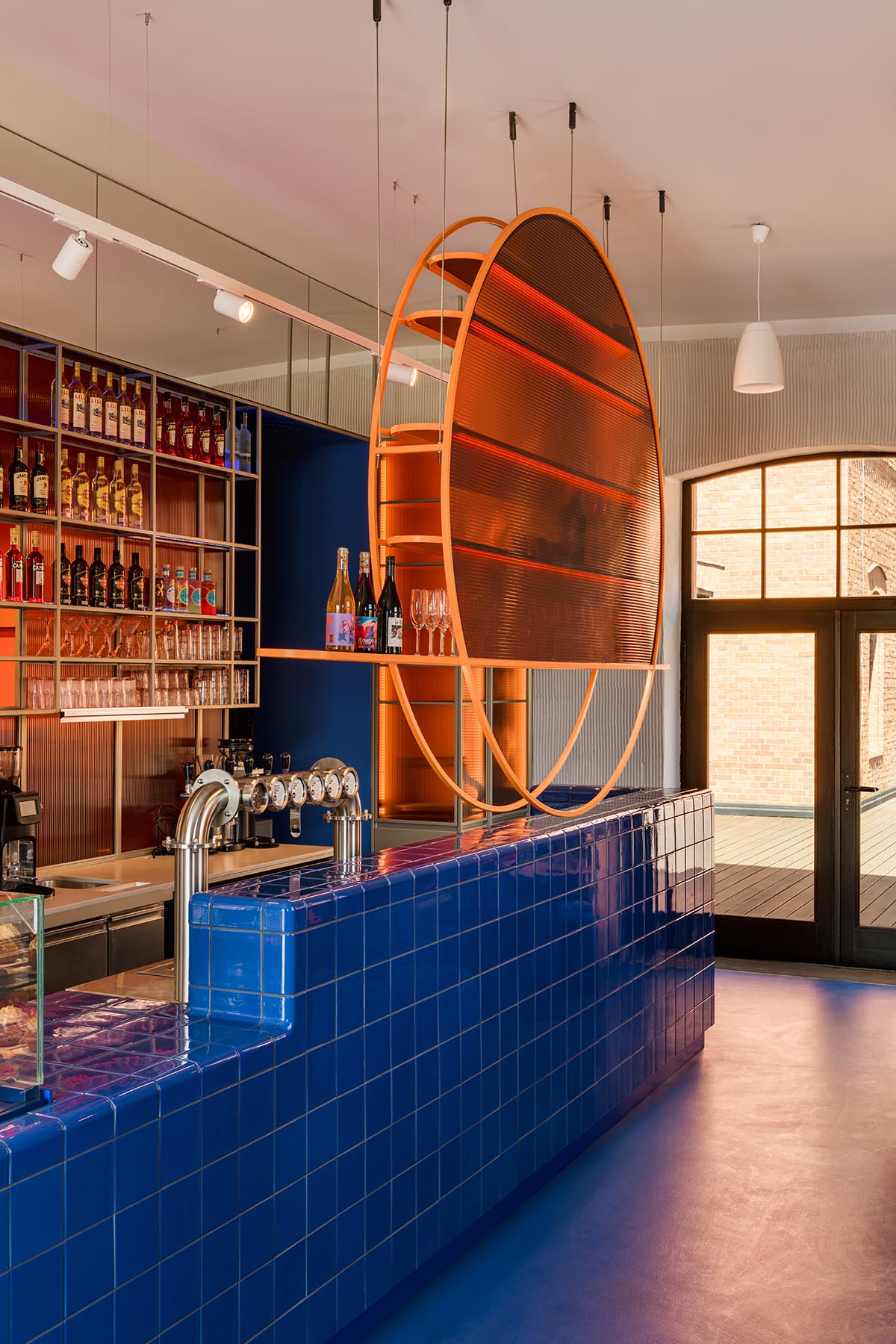
Internal production
Considering that production is such an integral aspect of this place, it was impossible not to highlight it in the project.
The division between the space available for the customers and the technological part is immediately noticeable upon entering the establishment. The open kitchen, equipment, and steel elements refer to the machines used in flour production.
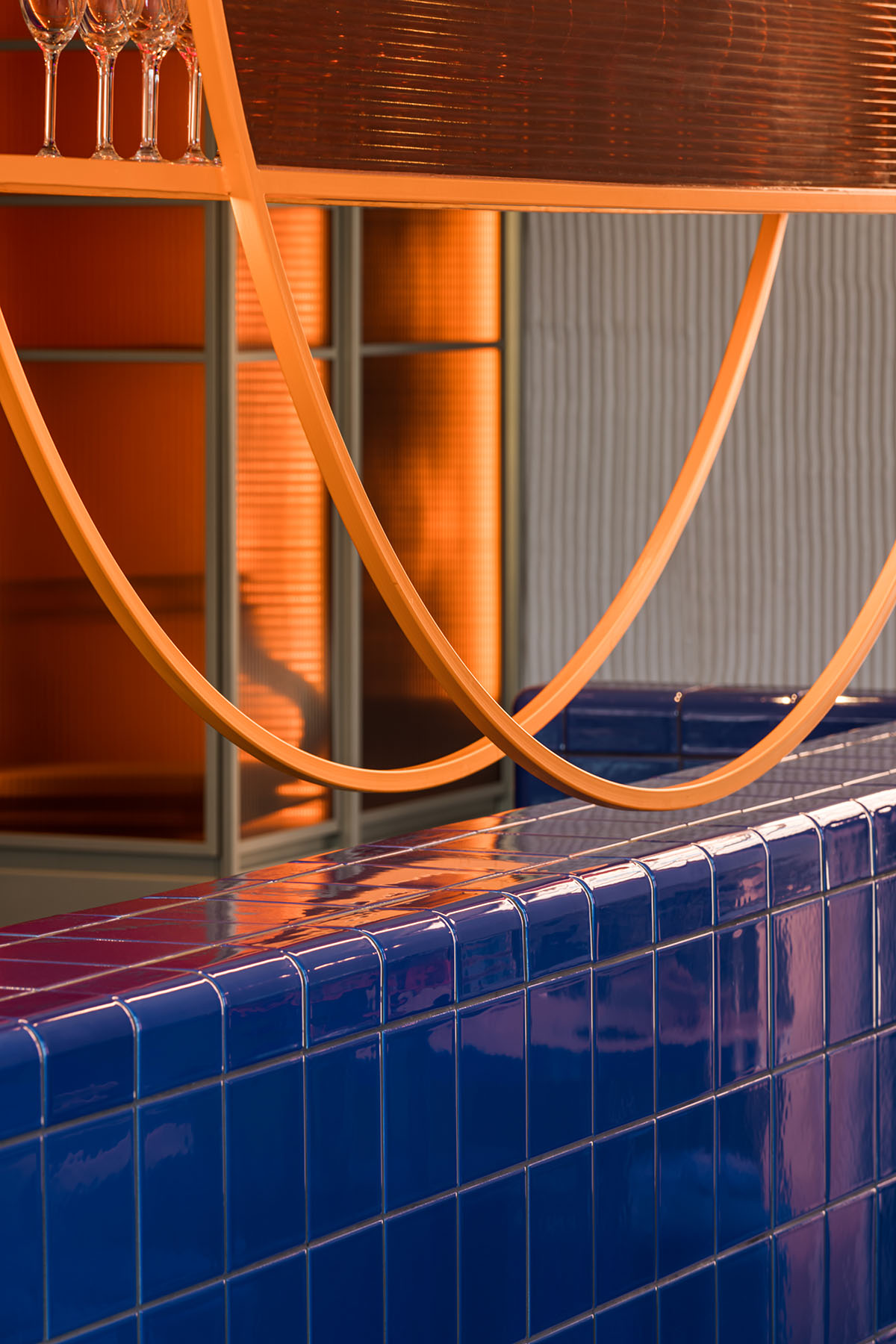
What's more, the distinct, vertical grooves in the structure of the plaster bring to mind associations with millstones and the raked traces of the milled grain distributed by the Hopper-boy machines.
Thanks to open technology, customers experience baked goods at every level of its production.
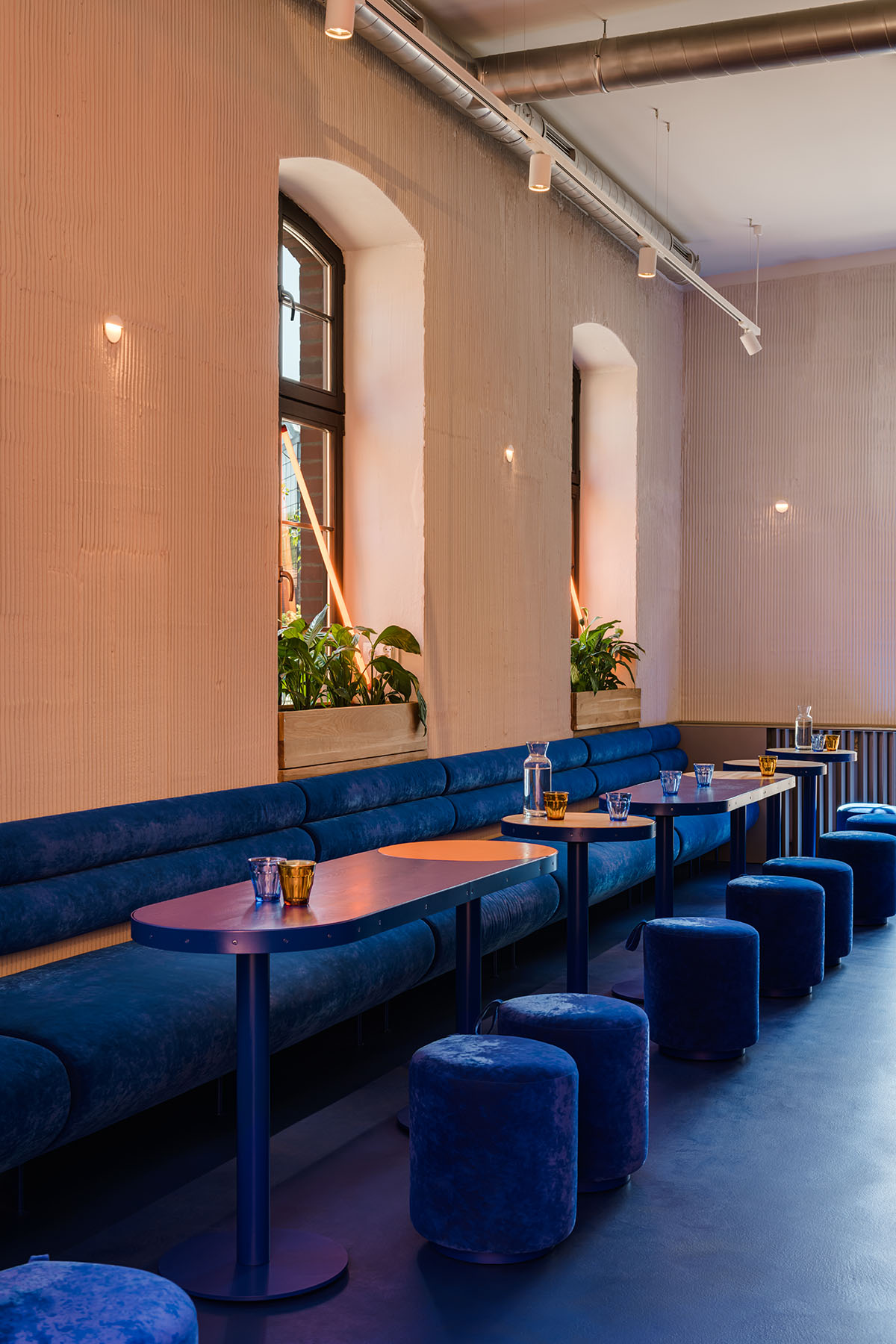
Pastry shop by day, club by night
Those two complementary colours, cobalt and orange, predominate the interior. Cobalt is associated with water, rawness, the technology of flour production, and flow movement.
By day this establishment functions as a pastry shop. It is a bright, cool-coloured technical place that contrasts with the displayed pastries and warm orange.
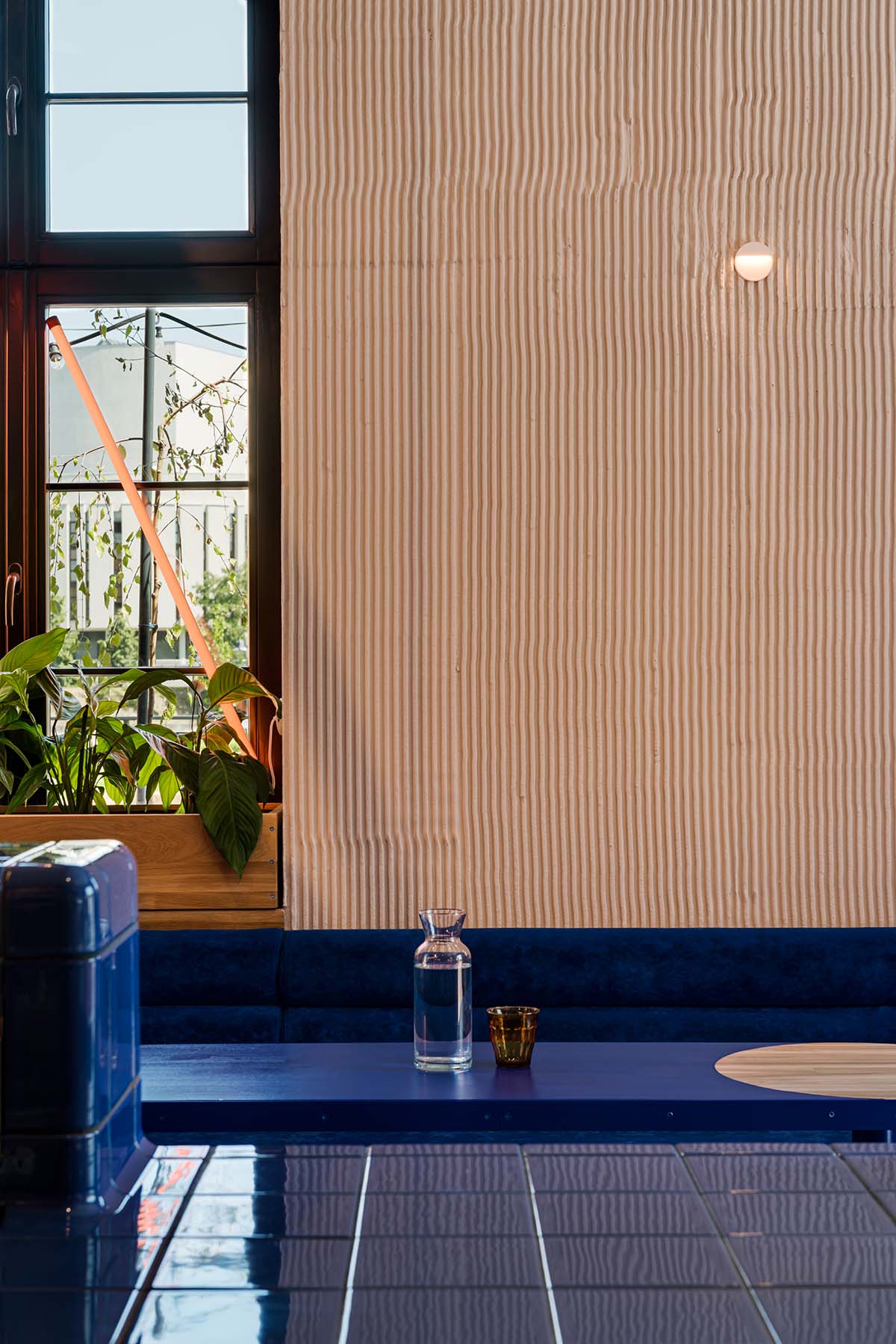
Changing colors
Orange symbolises the setting sun, the beginning of the evening, fun, warmth and sweetness. In the evening, along with the sunset, this place changes its function and transforms into a club.
The prevailing warm lights cause the cold cobalt to change its colour, just like the water surface changes in the light of the setting sun.
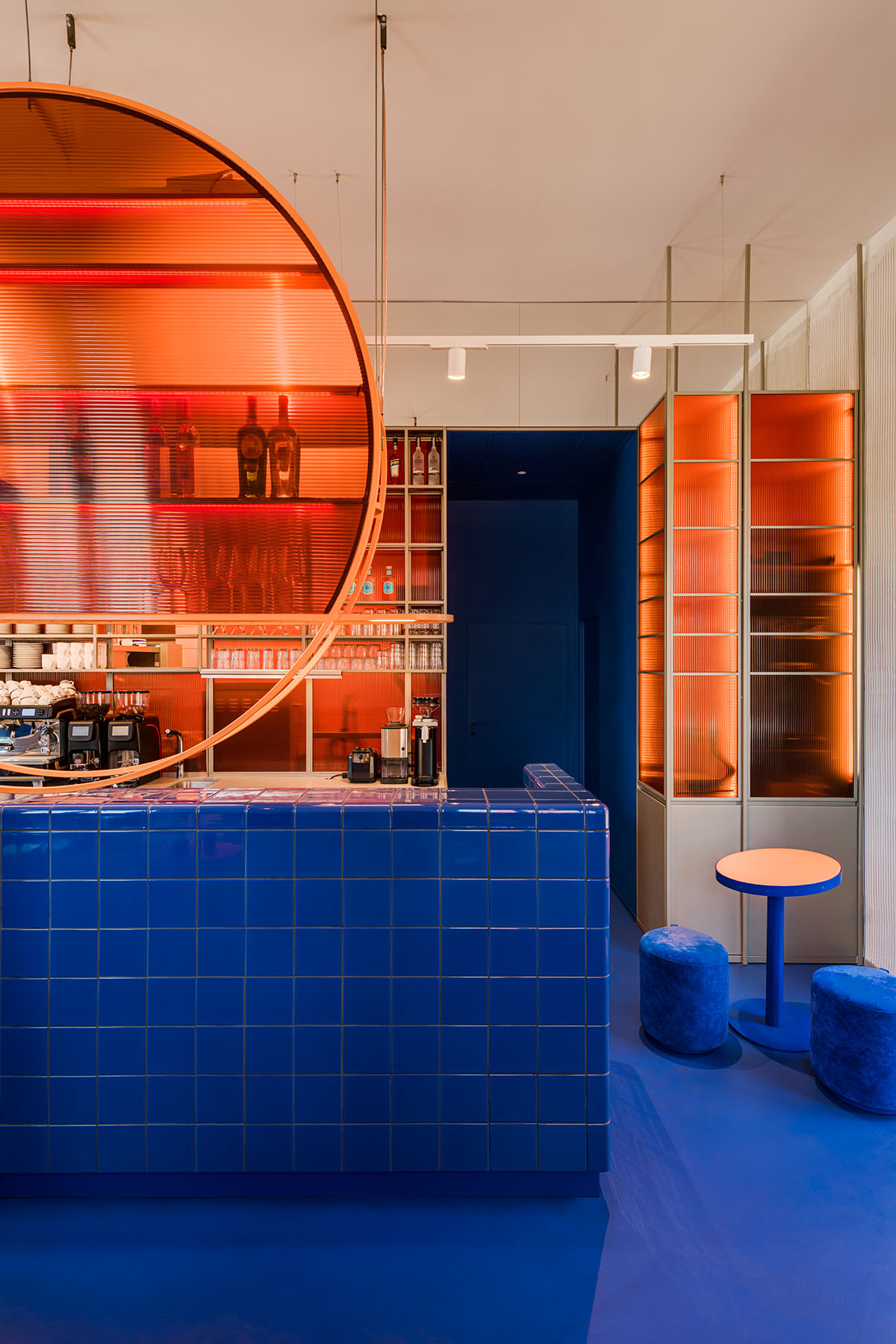
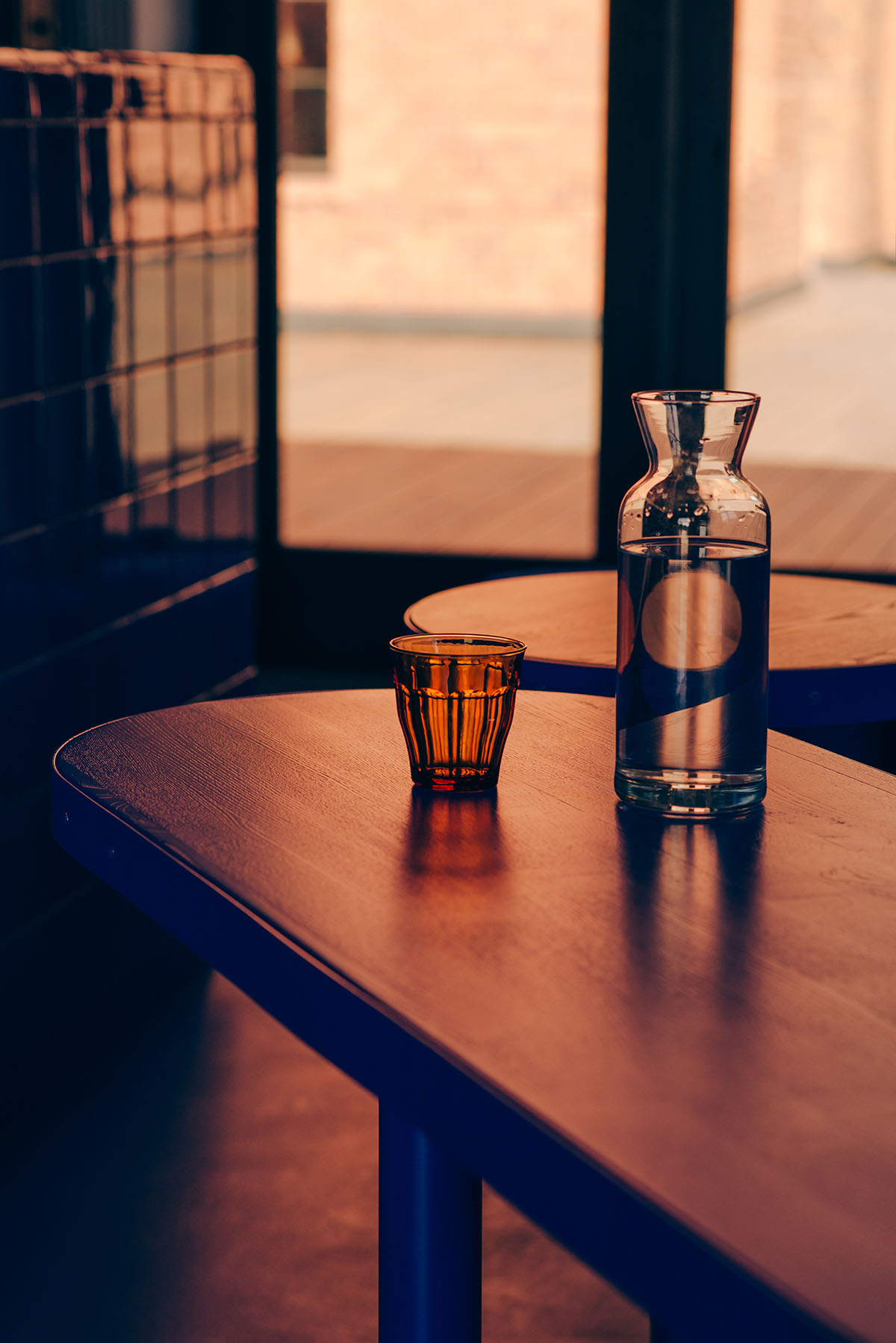
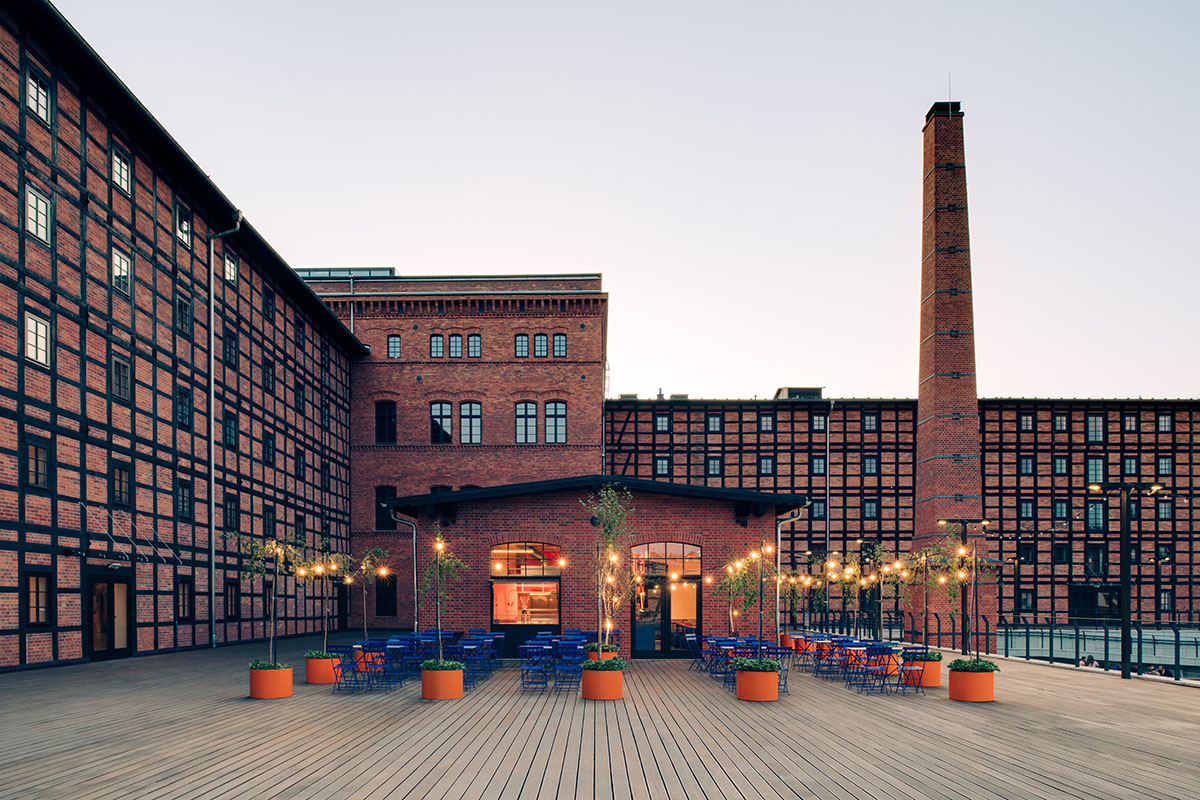
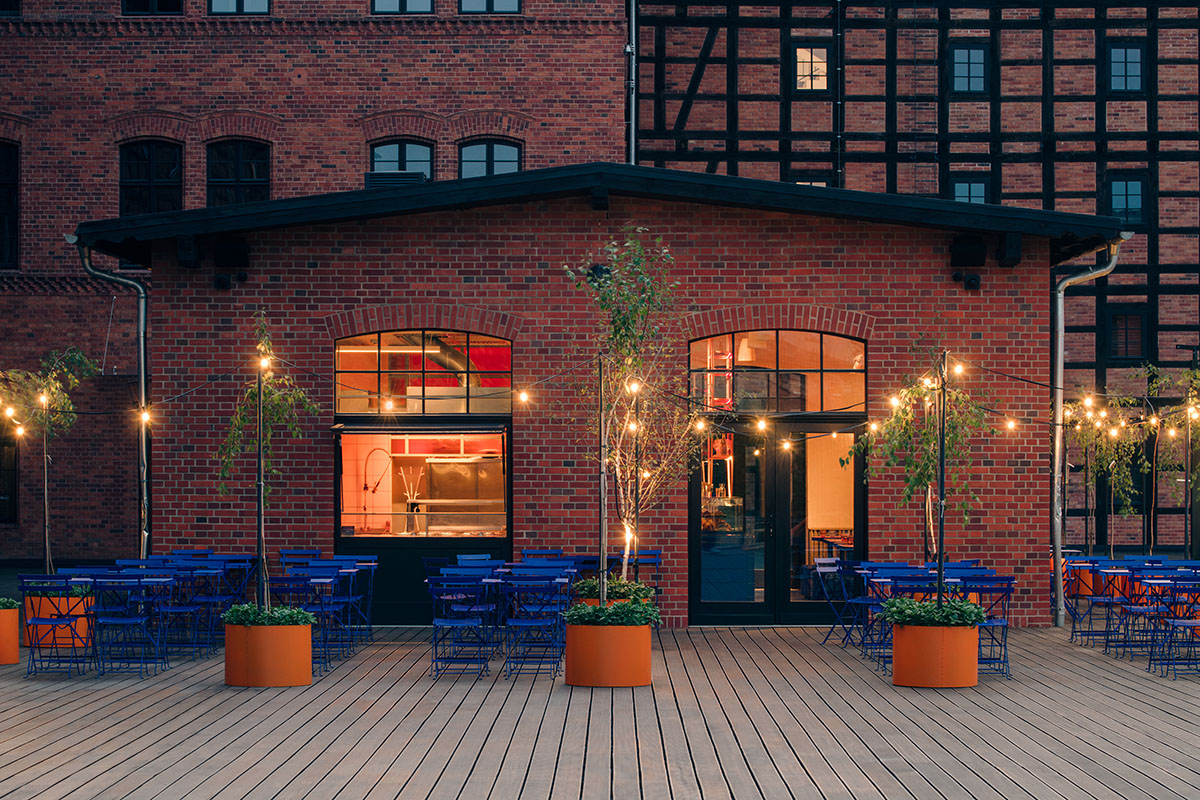
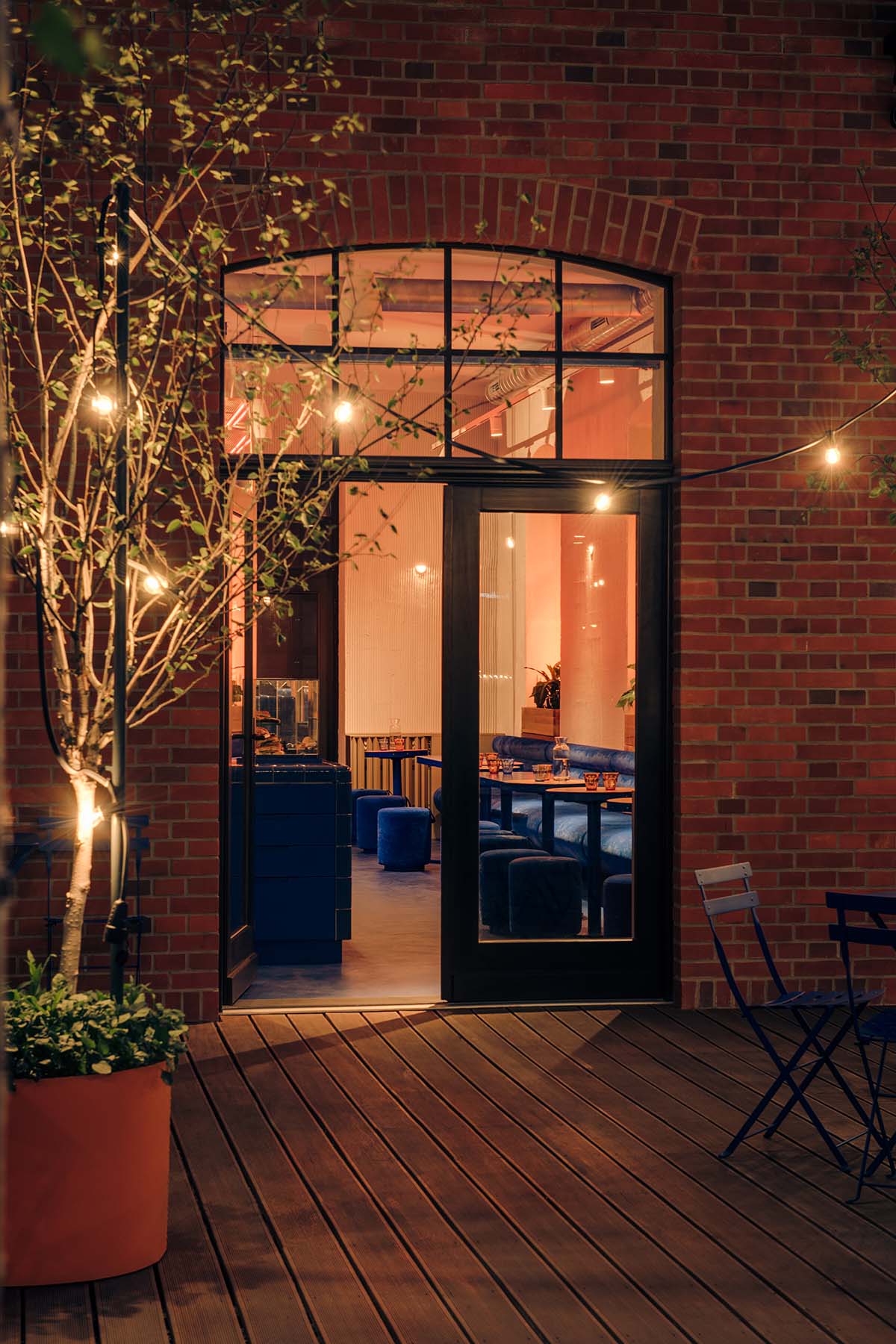
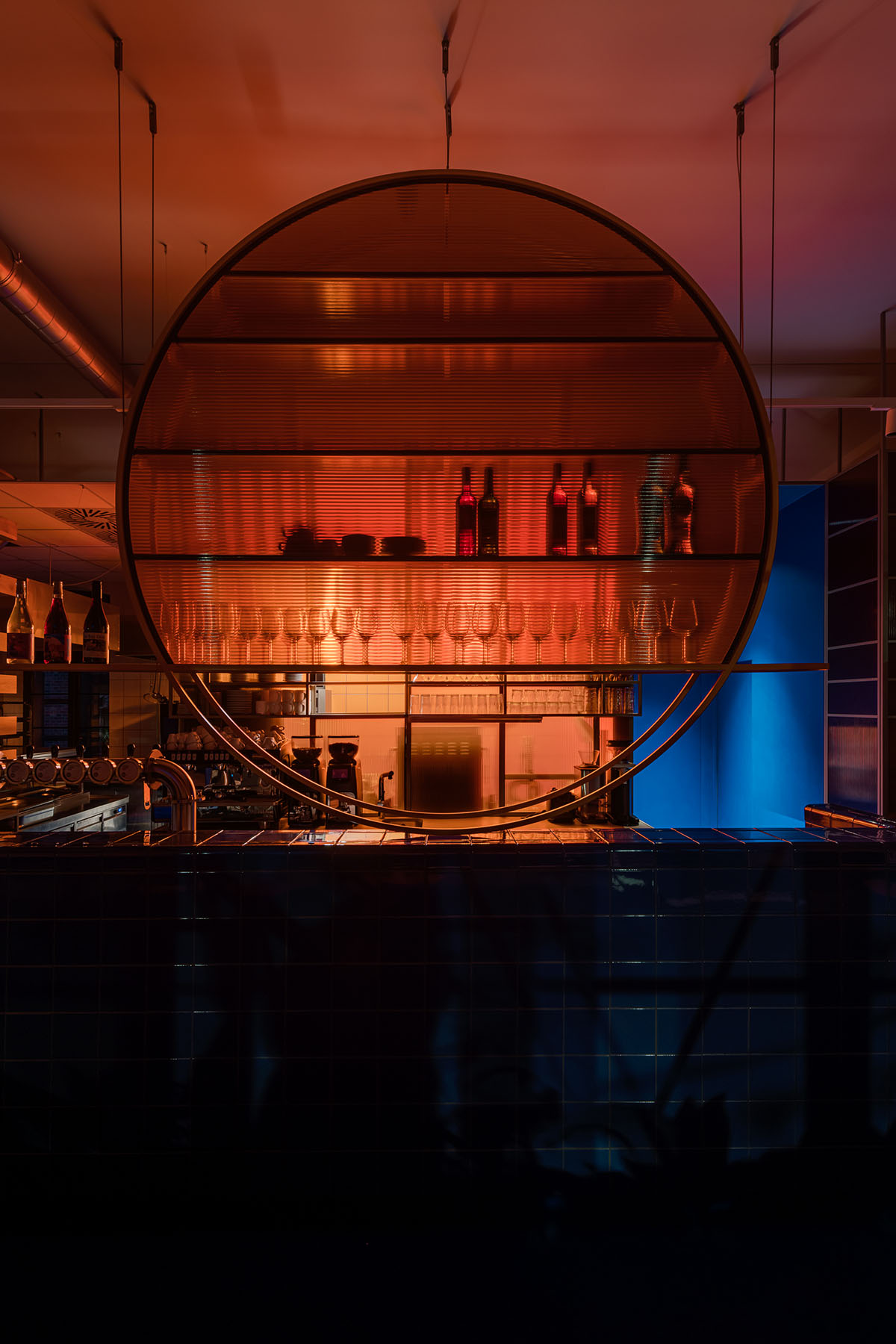
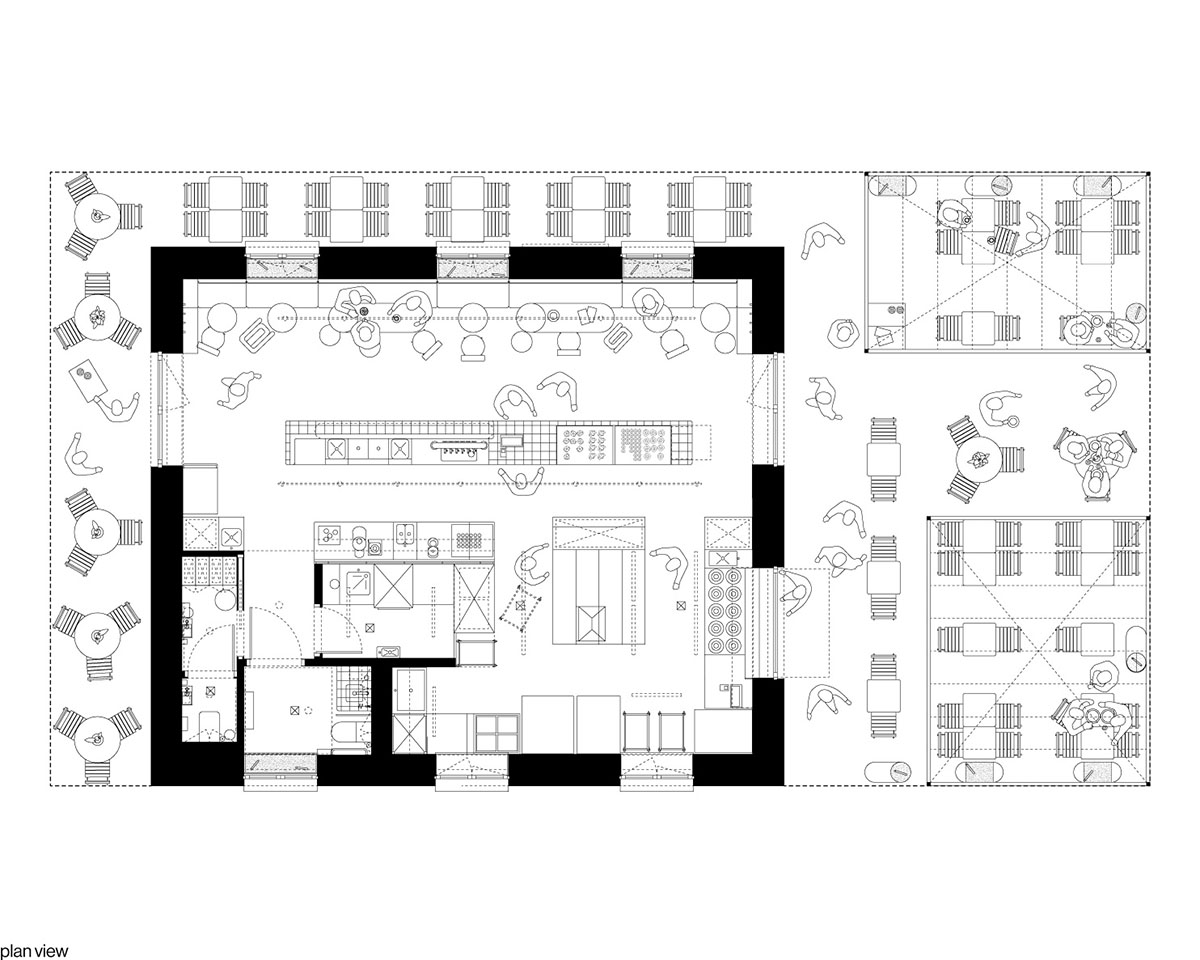
Floor plan
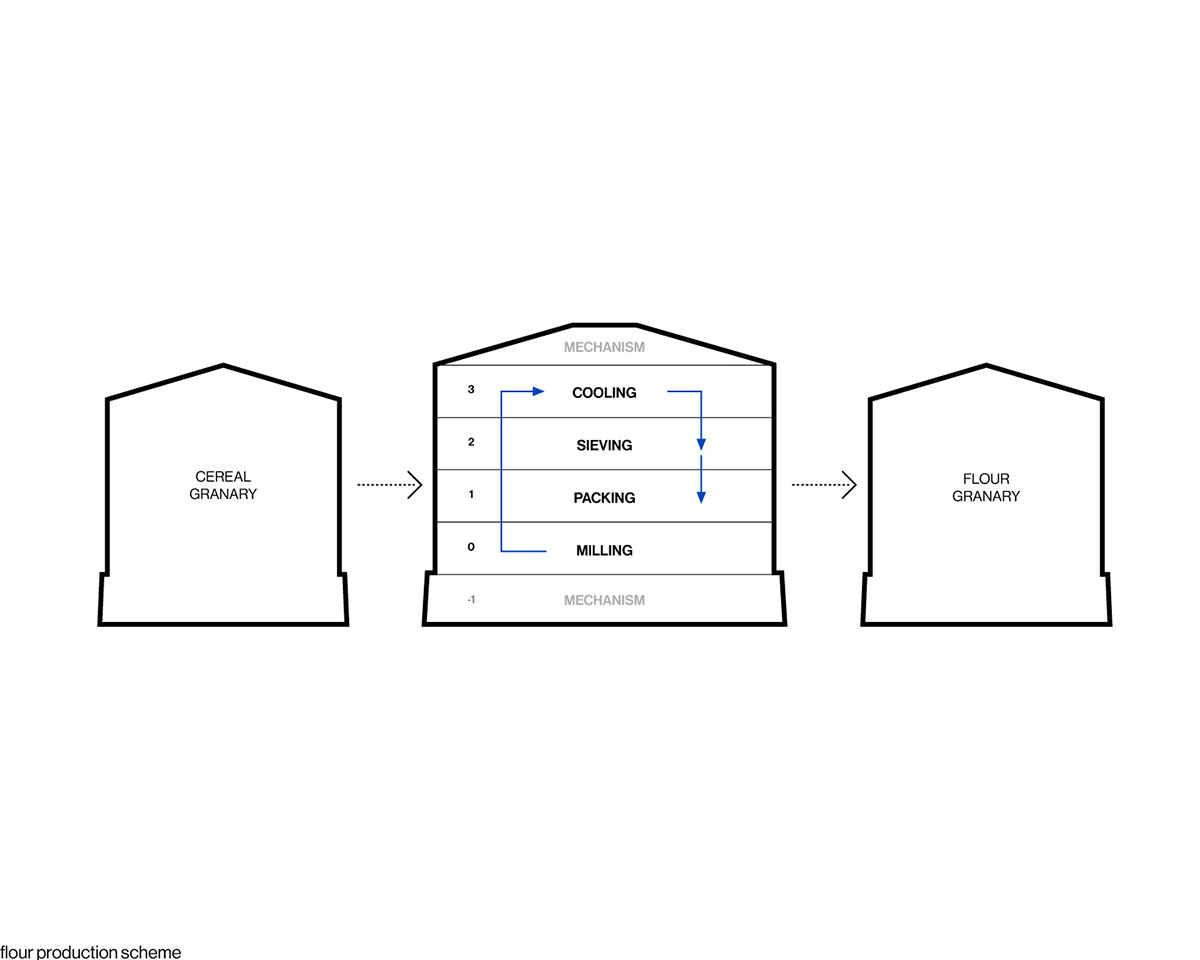
Scheme
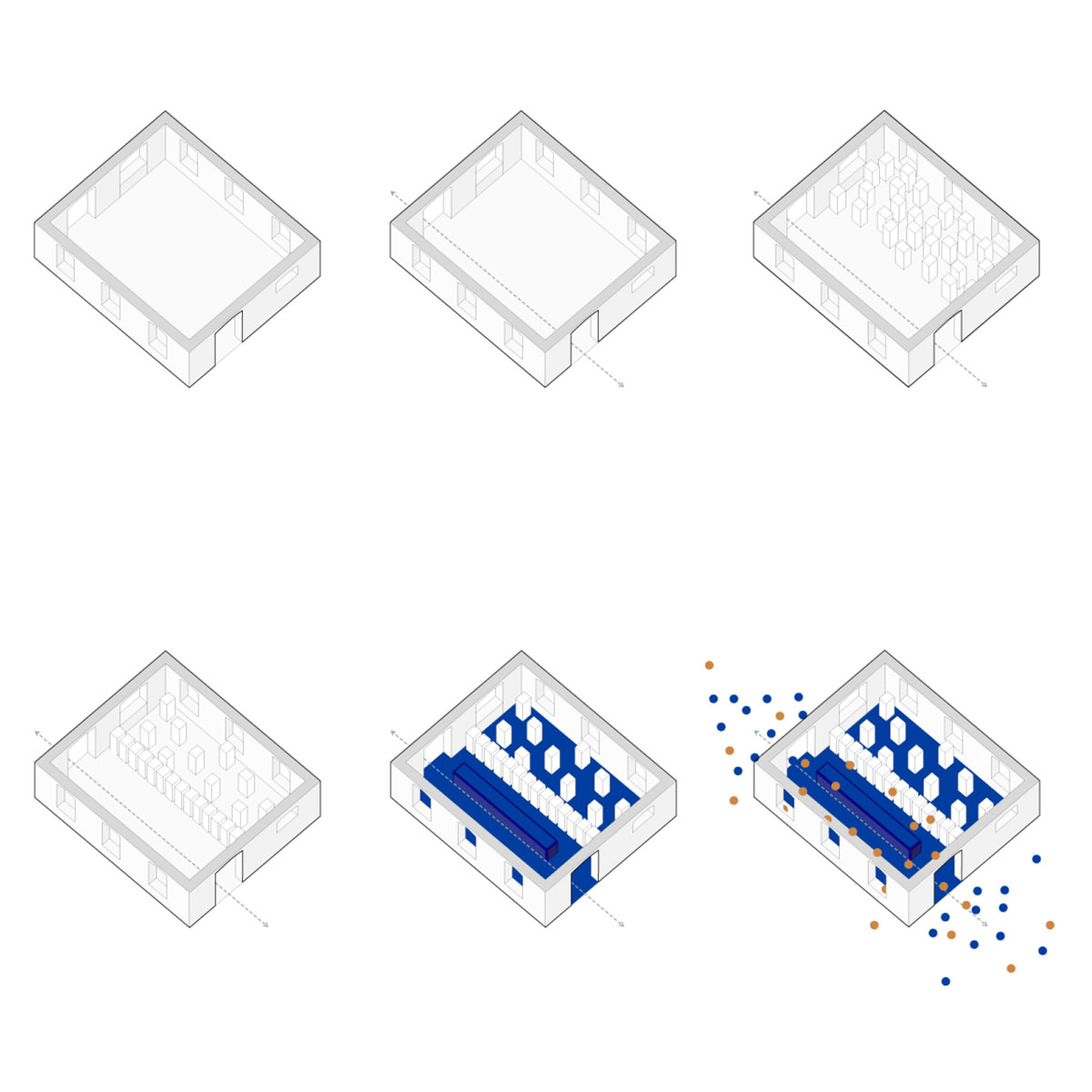
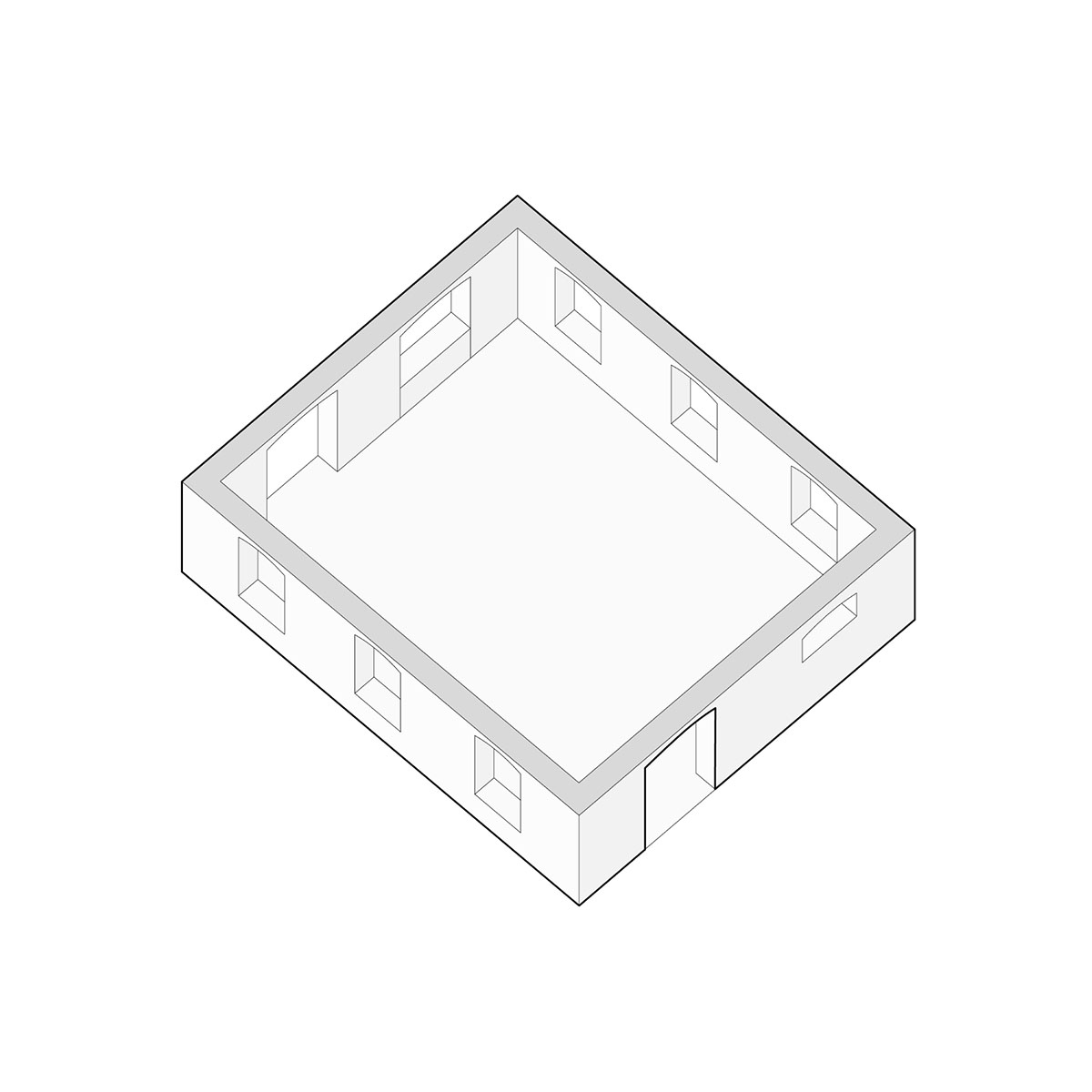
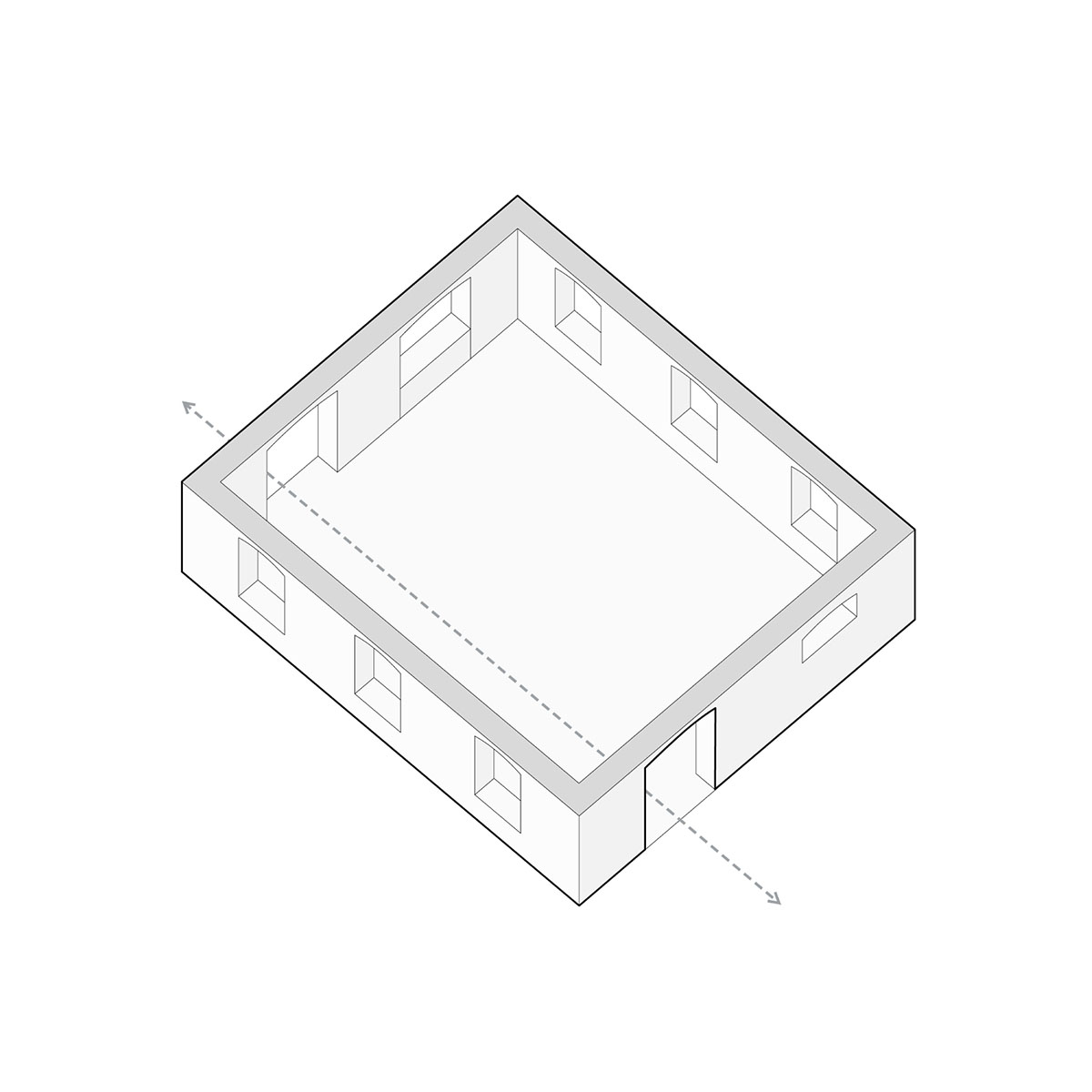
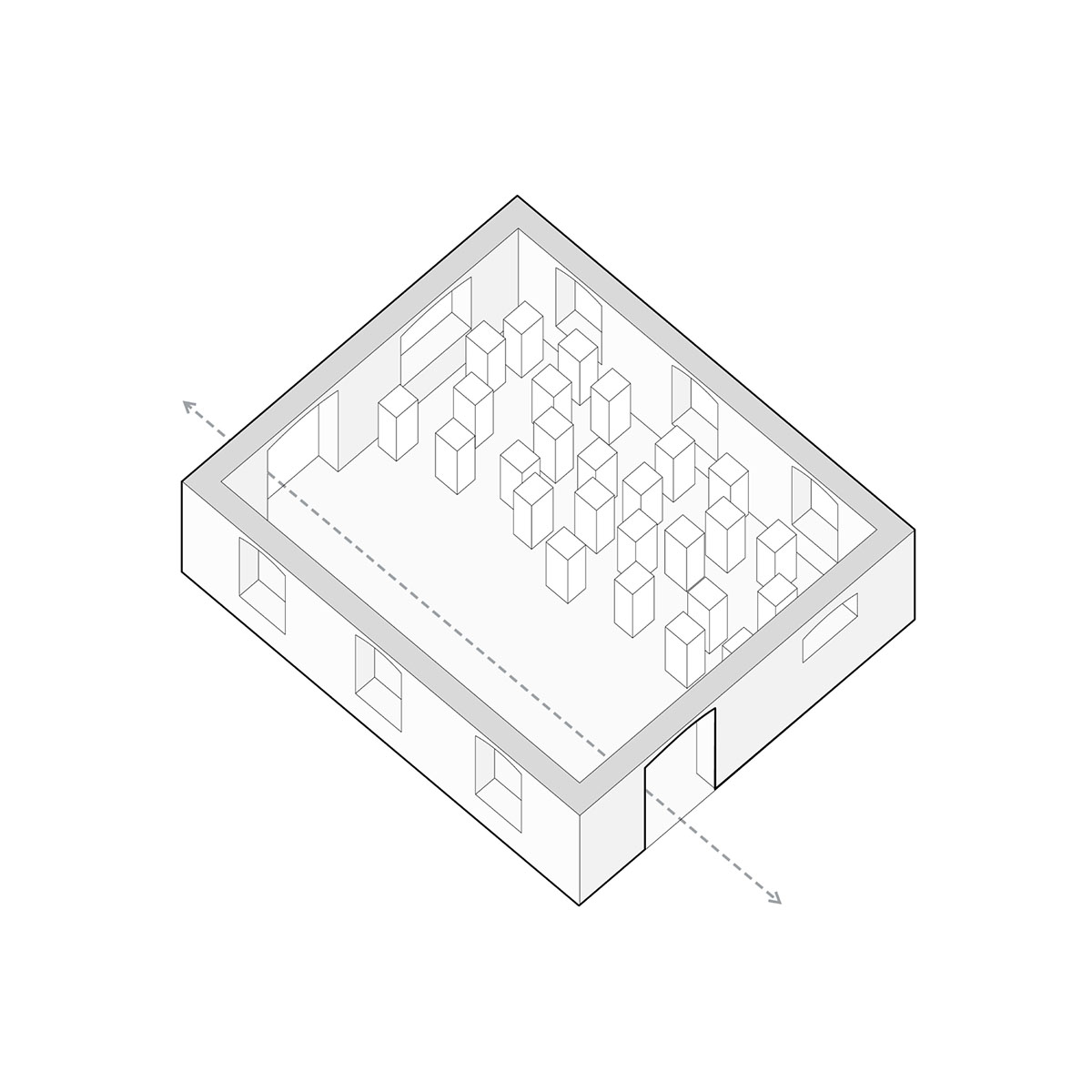
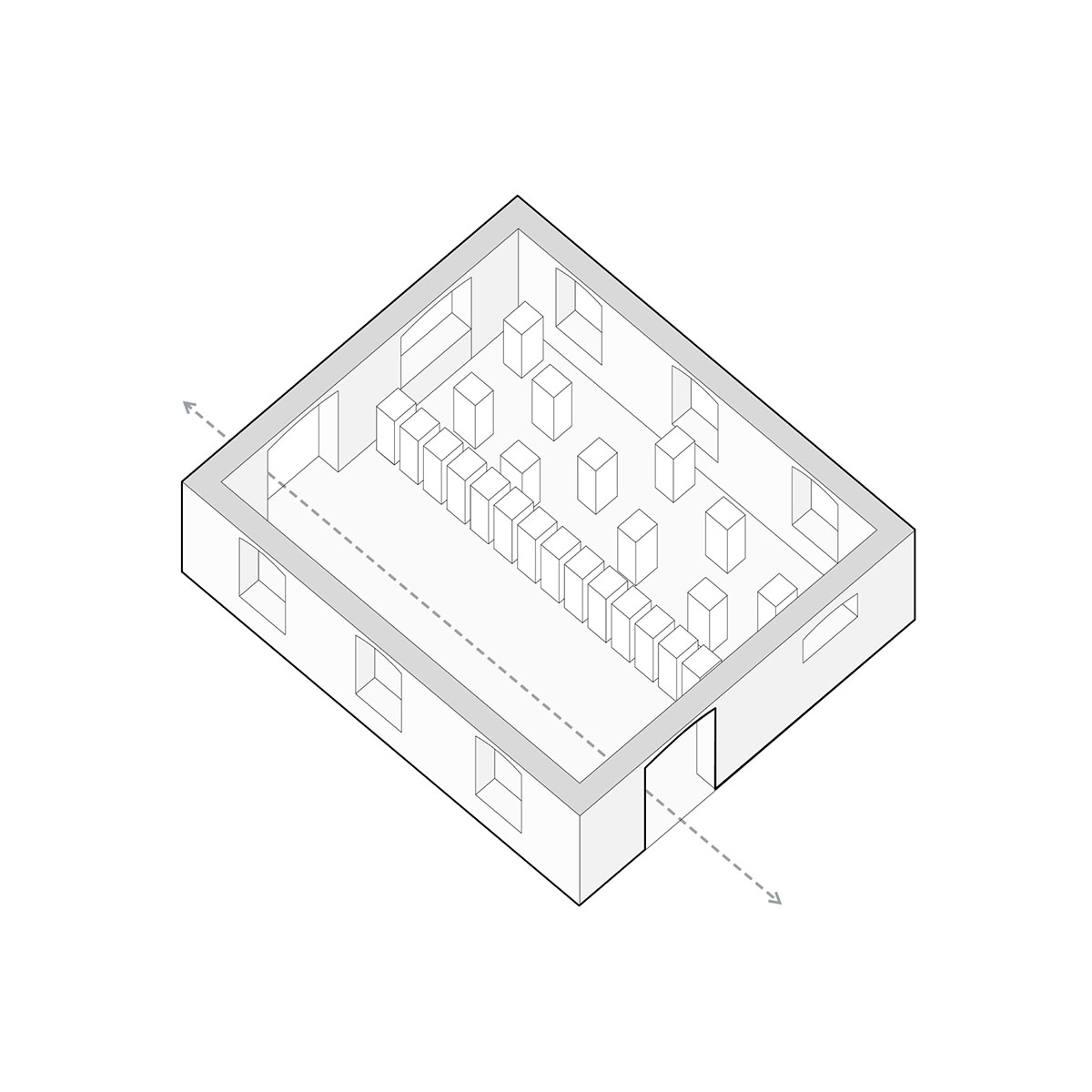
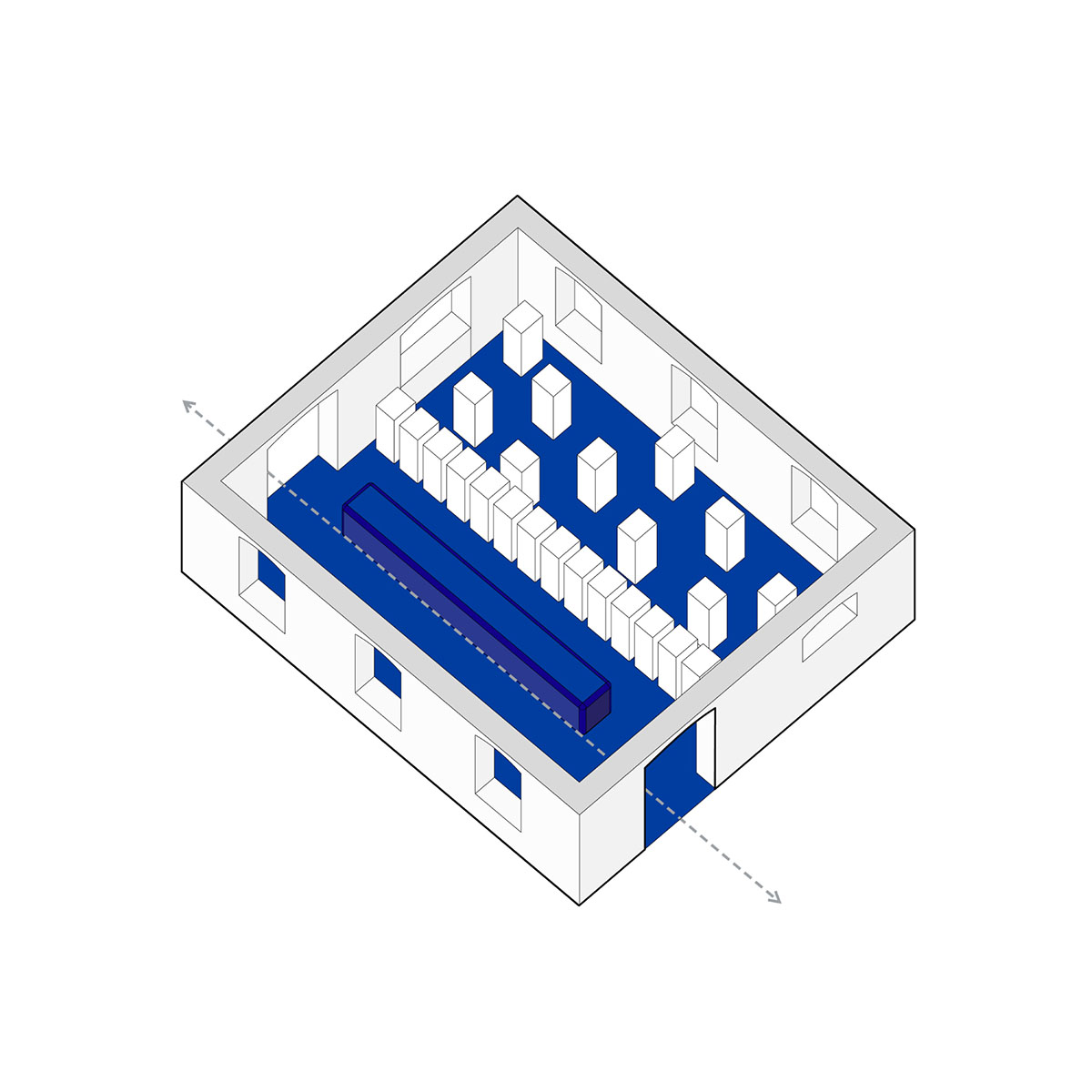
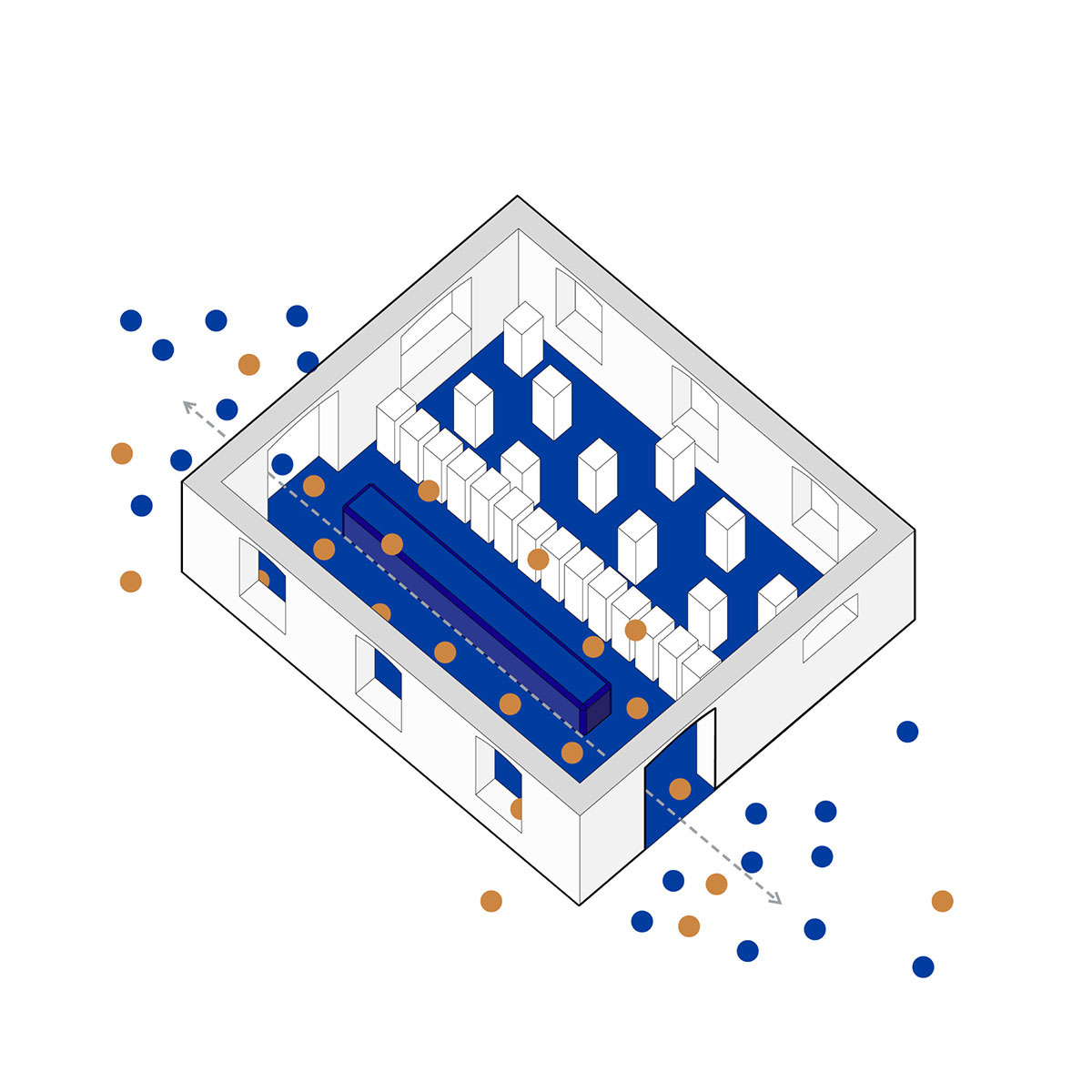
Project facts
Project name: Pastry Club Woda
Location: Bydgoszcz, Poland
Investor: Pastry Club Woda
Size: 78m2
Year: 2022
Project authors: Znamy się and architect Paweł Tatara
All images © ONI Studio.
All drawings © Znamy się.
> via Znamy się
